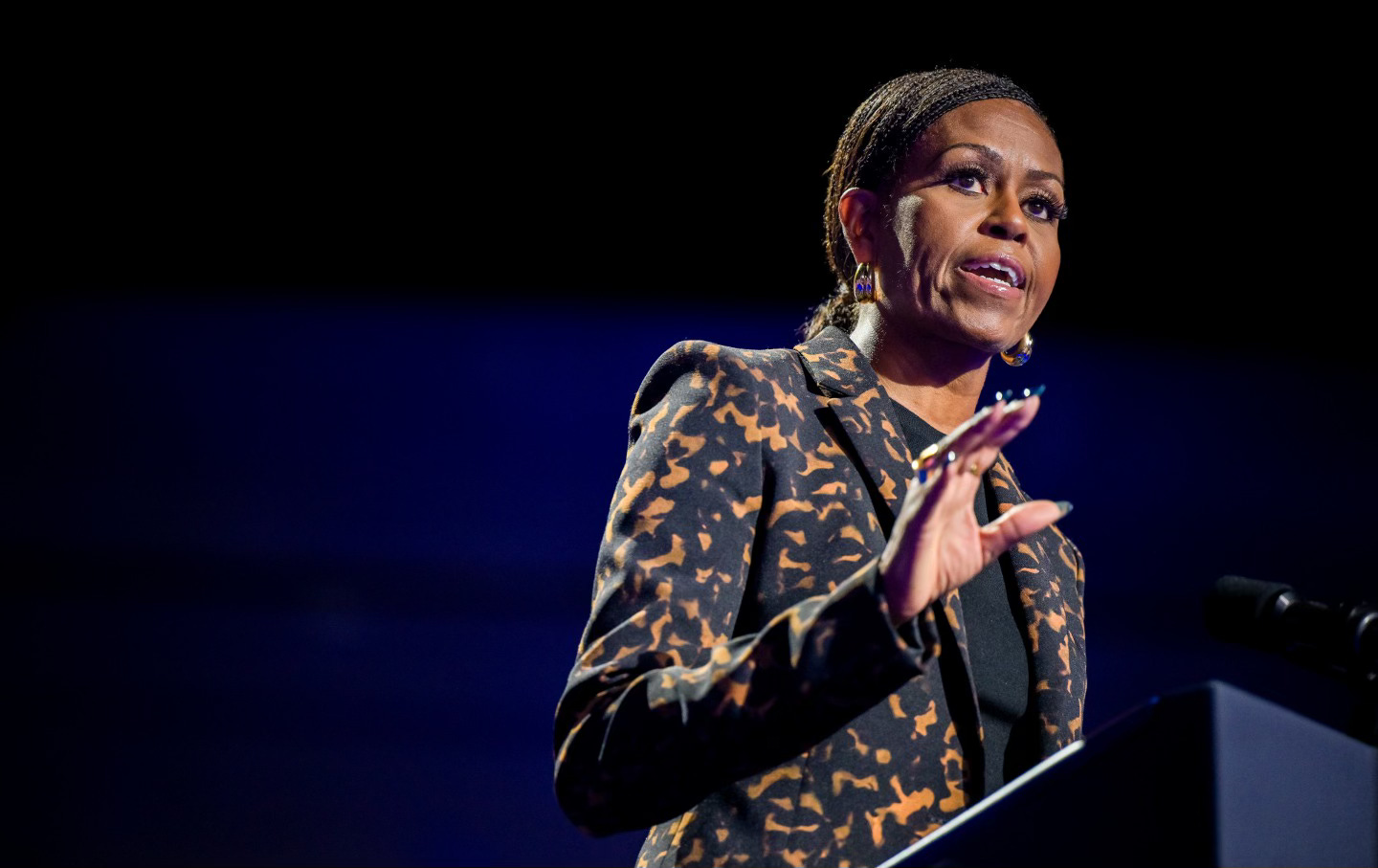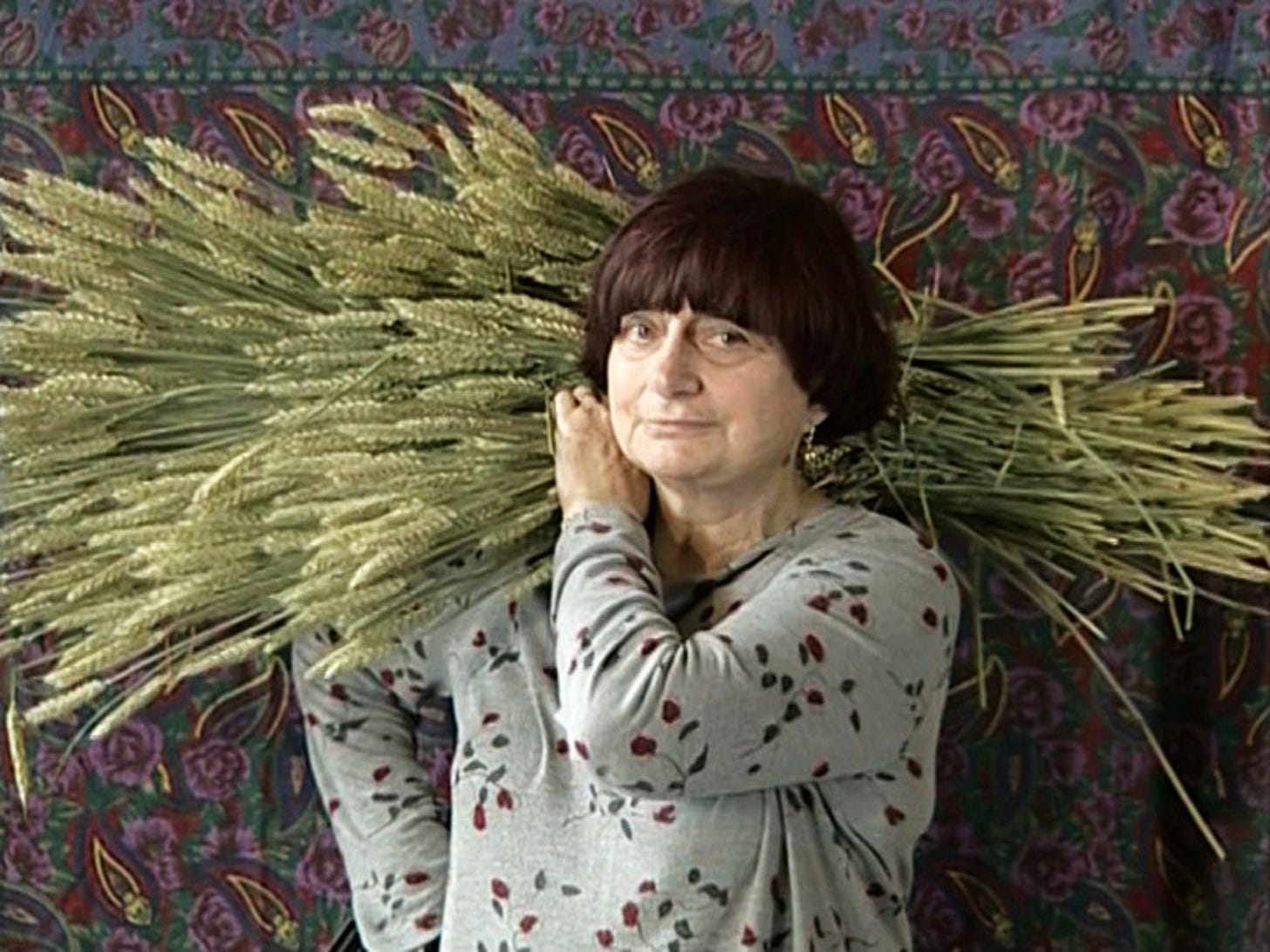For the past seven years, I’ve been on a kind of media diet to force myself to watch more movies made by women. I made a rule: half of everything I watched had to be written or directed by women. I started this diet in late 2017, because I was furious when the Harvey Weinstein allegations came to light. That was a wake-up call for me to think more deeply about the sexism of the film industry. I also started a blog, Thelma & Alice, to track and review the films I watched. I thought I would do it for a year or so, but I ended up keeping my media diet for seven years. I decided to write about the experience here, in a series of posts called “Notes on Watching Women.” Here are links to the previous posts: Intro, Part One, Part Two, Part Three and Part Four.

As I wrote in my first post, I am highly aware that I am posting these notes in a time when Americans are once again trying to elect a female president. These past two weeks leading up to election day have been rough. Trump has gone beyond rude and “unfiltered” to threatening and cruel. With his misogynistic rhetoric, Trump is doing his best to divide men from women, and to make men—especially young men—feel alienated from their communities and the people who truly love them. It’s a manipulative trick from a person who has only ever cared for himself. I hope it’s been clear in my notes that I am in favor of greater collaboration between women and men in filmmaking, not further divides. Maybe it’s idealistic, but I believe that art can bring us together.
I’ve been thinking a lot about Michelle Obama’s recent speech in Michigan, in which she appealed to men to think about the women they know and love, and how Trump’s policies, particularly around reproductive health, will affect girls and women. Her phrase, “take our lives seriously,” is what has stayed with me. It’s what I’ve been trying to do for the past seven years, with my media diet—take women seriously. I would like to extend her appeal to women, in general: take yourselves seriously, take your art seriously, take your time seriously, take your attention seriously. Maybe I am speaking to myself right now.
Many years ago, I took a playwriting class in college. I wasn’t an aspiring playwright—I wanted to write short stories and novels—but I loved theater and acting. I also liked that the professor was a woman, a playwright whose work had been produced in New York City. She was glamorous with her stories of working with actors whose names we recognized, but relatable with her casual demeanor and clothing, as well as her insistence that we call her by her first name. (I never felt comfortable doing this!) Hearing her laugh was a special prize and we all tried to amuse her. I think I hoped—as you do when you are starting out as a writer—that I would accidentally write something brilliant, my talent suddenly manifesting. I wanted to discover that I was a “natural” playwright.
What I discovered, instead, is that I had a fear-mongering inner critic who did not think I had the ability to write plays. This critic would amplify all the disparaging comments and critiques I’d ever heard—that inner radio station that Anne Lamott memorably described as “KFKD (K-Fucked).” I remember we had teacher-student conferences in lieu of midterms, and we were supposed to hand in a draft of a one-act play ahead of the meeting. But I couldn’t finish my draft. I had written myself into a corner and every idea I had to continue the story seemed completely stupid. I just couldn’t bear to put my bird-brained thoughts on paper. I emailed my teacher ahead of the conference, along with the half-finished draft, explaining why I hadn’t completed the assignment. I have no idea what I wrote but it took up a full page, single-spaced. I’m embarrassed, in retrospect, that I did such a thing. I guess I thought I was being responsible.
At our meeting, she handed me back my email. She observed that it must have taken me some time to write it, and she wondered why I had given voice to these feelings of inadequacy rather than writing another scene with the characters I’d already invented and brought to life. Without a full draft, it was difficult for her to critique my dramatic structure; I’d wasted an opportunity to learn. She then told me that my self-sabotage was something she saw in many of her female students, but not in her male ones. To get the message across, she took the email back from me and drew a big black line diagonally across the page. At the top, she wrote EXCUSES. ‘Don’t listen to these,’ she said. Maybe this all sounds very harsh, but it was revelatory. I kept that email for years, as a reminder. I think it was the first time anyone suggested to me that my self-doubt might be linked to the fact that I was a young woman growing up in a culture that did not take young women seriously.
This was 1998, for context. It was a few years after the Anita Hill trials—a political awakening for me—and “The Year of the Woman.” There was already a lot of backlash to so-called “PC culture” that was supposedly ruining school curriculums and comedy sets. At the same time, Monica Lewinsky was frequently the butt of jokes. It was a very confusing time to be a young woman. Which is maybe why my professor’s words had such an effect on me. I still struggle with an inner critic, but thanks to her I was able to recognize that patterns of procrastination and self-sabotage were not coming from deep inside of me, some kind of essential laziness or lack of drive. Instead, I had internalized the idea—exemplified in almost everything I watched—that women are side characters who don’t, and probably shouldn’t, say very much.
When I sat down to write these reflections on Election Day in 2024, I didn’t think I’d end up in playwriting class in the late 1990s, but here we are. I hope that things have changed for the younger generation. I know that things were easier for me than for my mother, and that things were easier for my mother than my grandmother. We are slowly rolling the ball up the hill. For me, and maybe for you, seeking out films made by women is a way to take women seriously. To give their ideas, images, and words the respect that the culture often withholds. In our attention economy, it feels strangely radical to direct my viewing habits in this way.
I’d like to close with a quote from Agnès Varda, whose films are all about paying attention, being curious, and remaining open: “In my films, I always wanted to make people see deeply. I don’t want to show things, but to give people the desire to see.”
Thanks for reading this series, “Notes on Watching Women, 2017 - 2024.” If you enjoyed these posts, please consider becoming a regular subscriber. I also recently published my second novel, We Were Pretending, if you’d like to check that out. Thanks again for reading, and please feel free to comment or reach out to me directly via email. Now, let’s go vote!






I was so moved by this on a day when I can't think of a single thing to write--for my newsletter and for my novel. xoxo